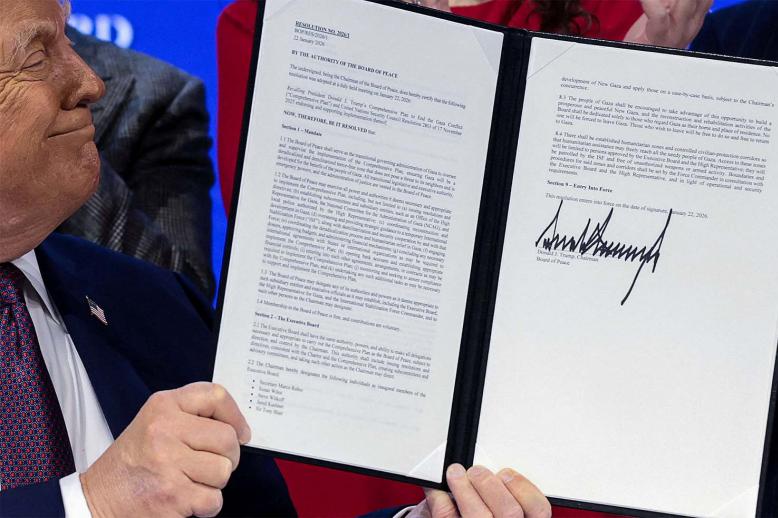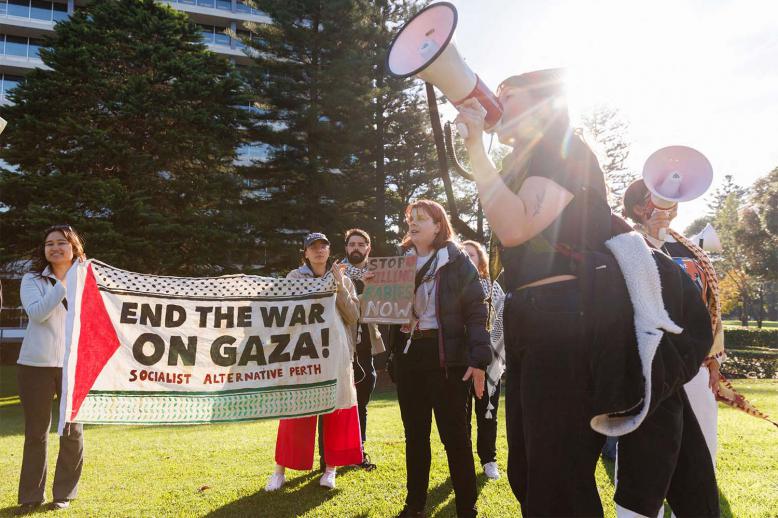Arab summit failed to face new realities
The 30th Arab Summit was a Tunisian success. It was in an Arab country that has been trying to recover amid extremely difficult internal and regional conditions. Despite the difficulties and complications, Tunisia organised the summit in a reasonable and highly acceptable atmosphere.
The Tunis summit came while the Ennahda Movement party has been trying to drag Tunisia from living up to its reputation as Tunisia the Beautiful. Tunisian President Beji Caid Essebsi firmly believes in Tunisia the Beautiful and has tried to make the most of Habib Bourguiba’s legacy.
Caid Essebsi has been trying to complete the mission of Bourguiba, who, after Tunisia’s independence in 1956, endeavoured to lay the foundations for a modern and civil Arab state, a country that is fair to women and where state institutions are at the service of its citizens and where common sense triumphs.
Bourguiba also tried to reconcile the Arabs with common sense but the Arabs refused to listen and called him a traitor. When it was too late, the Arabs realised that what Bourguiba had told them in his famous 1965 Jericho speech was the truth and listening to him could have spared them many losses and much humiliation. Two years after that speech, the Arabs experienced the stinging defeat of 1967.
Among the first things the recent summit revealed was the need for the Arab countries to reconcile themselves with the new realities in the Middle East and the Gulf, considering the implosions of certain countries in the region.
Topping that list is Syria. What Damascus needs is time for a transition phase after which it will be known whether the new Syria is a viable state or perhaps it will turn out that the only concern of the existing regime is to finish the process of fragmenting this old entity that has been unsure of itself since the day of its establishment in the 1940s.
In this framework, it can be said that the Tunis summit was an organisational success but somewhat of a political failure. To some extent, the summit did establish general outlines of Arab policies.
First among these was the necessity to address the question of Iran and its expansionist project. Not only does this project threaten every Arab country, it targets Arab societies by stirring up sectarian instincts. What is going on in Iraq, Syria, Lebanon and Yemen is proof of that.
The summit’s success in focusing on Iran should not conceal the absence of any practical step on any level at a time when there is a US administration that does not care about a peace process in the Middle East.
This is an administration prepared to take reckless steps that have nothing to do with common sense, such as recognising Jerusalem as the capital of Israel and transferring the US Embassy to it.
The summit revealed that the Arabs have a problem dealing with the Trump administration, which seems to be living in its own world. One of the right things it did was to back out of the nuclear agreement with Iran. To its credit is its full realisation of the dangers of Iran’s expansionist policies.
The Trump administration, however, is totally and completely biased in favour of Israel and does not realise that this unreasonable bias serves the interests of Iran.
In between the positive US position regarding the Iranian file and the Arab summit’s decisions regarding the situation in the Arab world, there was a gap that must be bridged. What is the point of antagonising the American administration when we know its total bias towards Israel?
Is it possible to make any progress in the peace process without a US role? It is necessary to return to the logic that Bourguiba applied to the Arab reality in his Jericho speech and which he had tried to convince Gamal Abdel Nasser and the Palestinians of to no avail. Bourguiba had invited the Palestinians and the Arabs to accept the 1947 partition resolution. Jericho at that time was not under Israeli occupation.
To cover their inability to develop a plan for dealing with US President Donald Trump and his team, the Arab leaders couldn’t think of anything better than to resort to the Arab initiative adopted by the Beirut summit in 2002 but rejected by Israel. What’s to force Israel to accept the Arab initiative?
That also applies to the Tunis summit’s rejection of Trump’s decision to recognise Israel’s sovereignty over the occupied Golan Heights. There is no disagreement about the fact that the Golan Heights is Syrian and occupied territory, even though part of the land is Palestinian territory.
There is no dispute that the US administration has done away with all international resolutions that guided the peace process. Be that as it may, one wonders about who will take over the Golan Heights once the Israeli occupation is removed. Is there still a thing called Syria to take over the Heights? Or perhaps it’ll be Iran’s Islamic Revolutionary Guard Corps?
The Tunis summit purposely avoided dealing with embarrassing questions so it did not address the Syrian regime’s refusal to recognise the Shebaa farms as Lebanese territory so Lebanon could formally request Israel’s withdrawal from this occupied territory, along with the Golan Heights.
There are new conditions and realities in the Arab region that require a new approach and a new way of thinking. The Tunis summit failed to address these new realities.
The 30th Arab League Summit was successful thanks to the efforts of Tunisia, which has once again proven that it has something to offer other Arabs.
Khairallah Khairallah is a Lebanese writer.
This article was originally published in The Arab Weekly.







